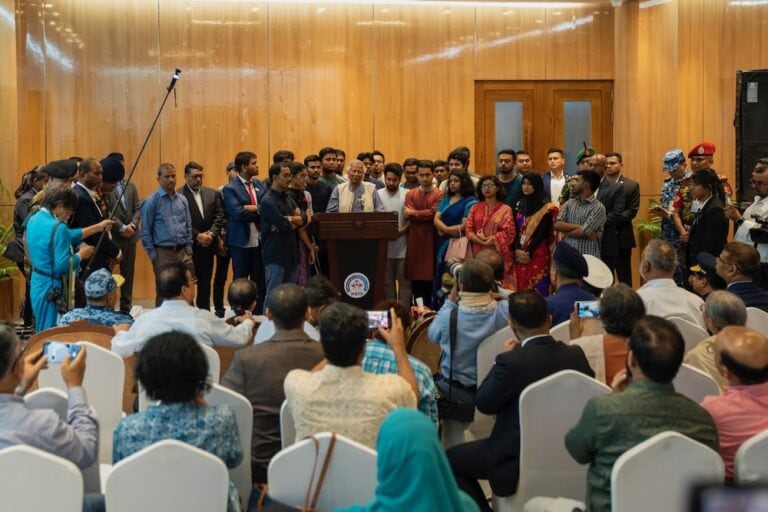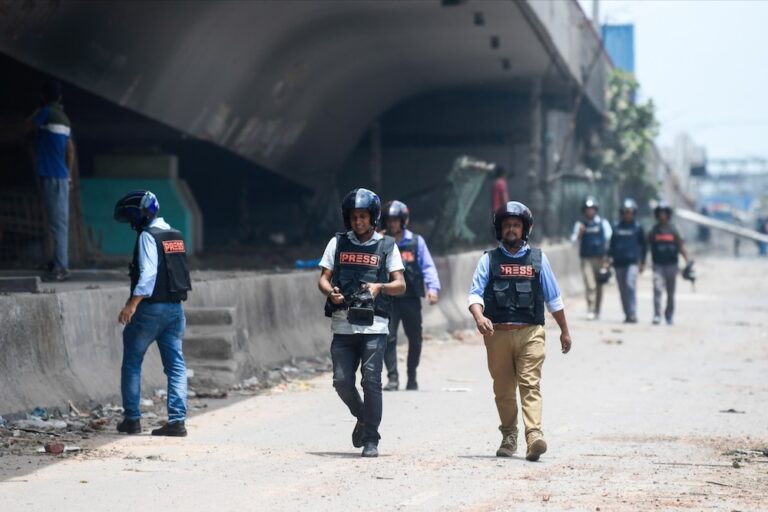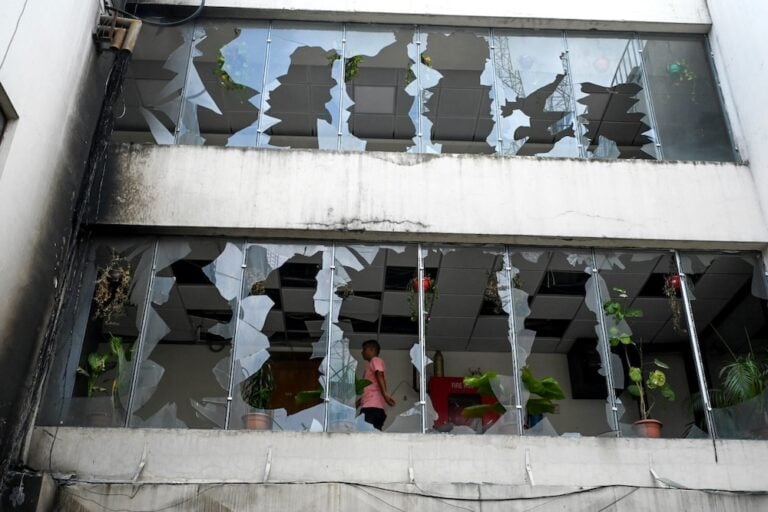(RSF/IFEX) – On 13 December 2002, journalist Enamul Huque Chowdhury, a stringer for the British news agency Reuters, was arrested for reporting that the 7 December bomb attacks on cinemas in the northern town of Mymensingh may have been the work of Al-Qaeda terrorists. He faces two years’ imprisonment. The report quoted Interior Minister Altaf […]
(RSF/IFEX) – On 13 December 2002, journalist Enamul Huque Chowdhury, a stringer for the British news agency Reuters, was arrested for reporting that the 7 December bomb attacks on cinemas in the northern town of Mymensingh may have been the work of Al-Qaeda terrorists. He faces two years’ imprisonment.
The report quoted Interior Minister Altaf Hossein Chowdhury as speculating that Al-Qaeda may have been behind the attack, but the minister later denied having made a statement to that effect. Reuters withdrew the report, saying it could not guarantee its accuracy.
Without judging the episode, RSF has called for the journalist’s release, noting that the United Nations Special Rapporteur for Freedom of Opinion and Expression had ruled that prison sentences for such offences were out of proportion to the crime.
Enamul Huque Chowdhury, aged 45, a senior correspondent for the official news agency Bangladesh Sangbad Sangstha and a stringer for Reuters, was arrested during a police raid after spending two days in hiding.
He was taken before a judge, who authorised police to hold him for questioning for at least three days. He could be jailed for two years for issuing “false or malicious” information against the government.


